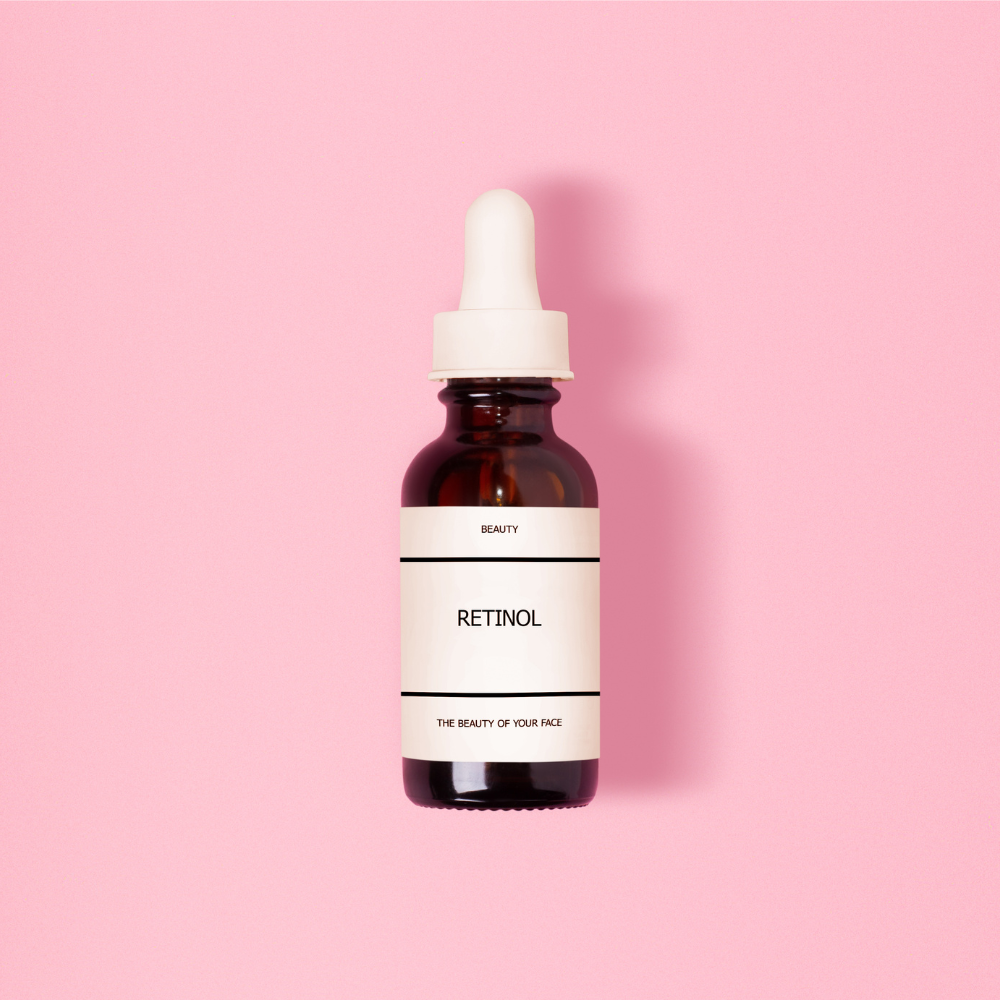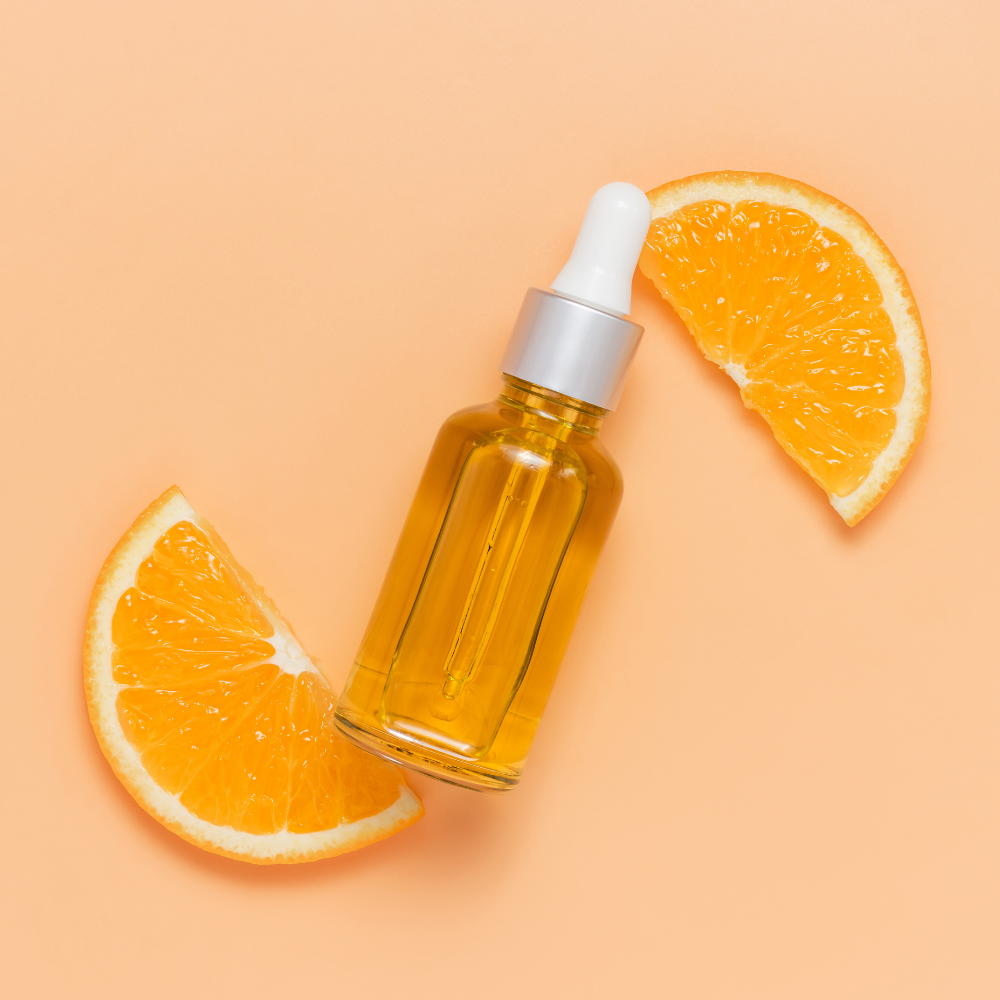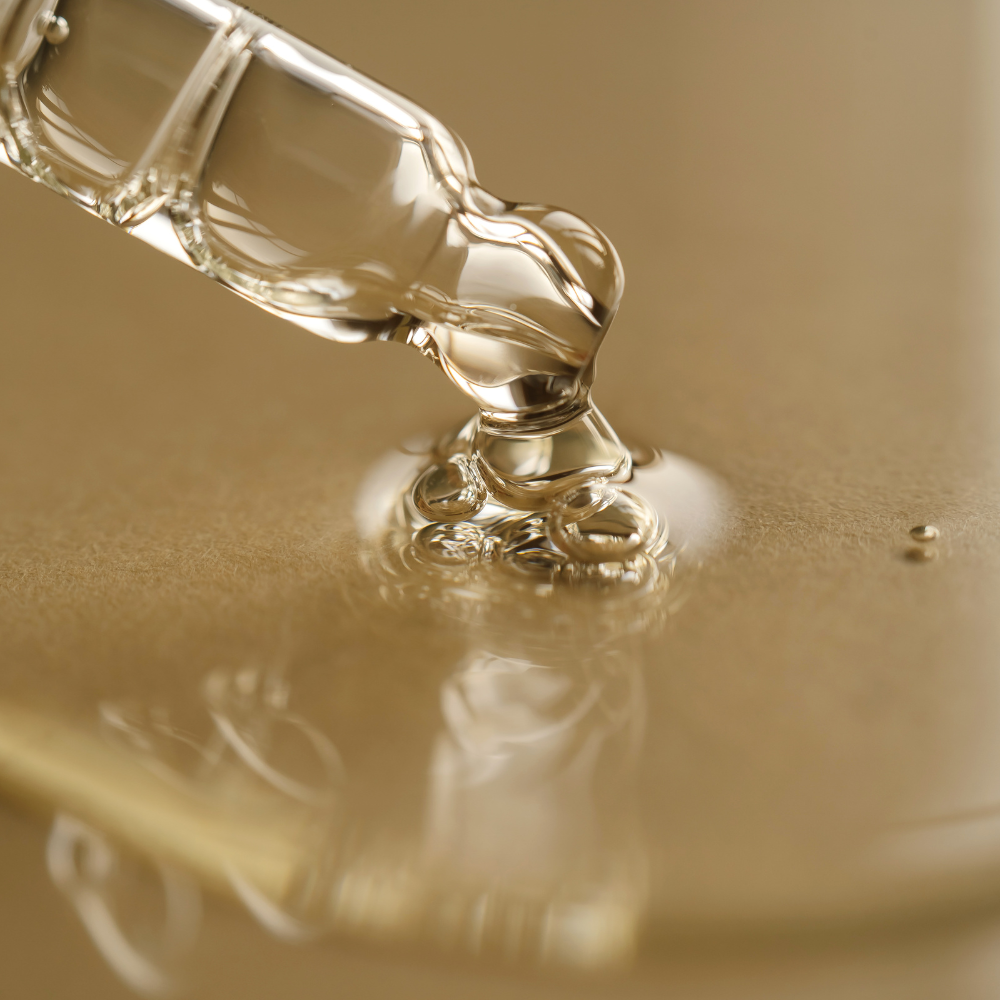As we age, it becomes crucial we take extra care of our skin. But with the ever expanding skincare world, maintaining healthy and youthful looking skin becomes confusing. But the two potent ingredients - Vitamin C and Retinol - can help in major ways. Though both are a staple in anti-aging skincare, they work differently and have fantastic benefits on your skin.
Read this blog till the end to find out everything about Retinol vs Vitamin C and get answers for questions like what is retinol, what are the benefits of Vitamin C, when to use retinol and Vitamin C and can we use retinol with vitamin c?

What does retinol do to your skin?
Retinol is a form of Vitamin A that is used in anti-aging skincare to stimulate the skin's natural renewal process and make it smooth and firm. Retinol is a fat-soluble ingredient, meaning when used in skincare products like serums and moisturizers, it can easily absorb into the skin. It's also highly photosensitive and breaks down in sunlight making it ideal to be used at night time.
Retinol has the ability to stimulate collagen production, increase cell turnover and reduce the signs of aging on your skin. It helps in the biological process of shedding dead skin cells and regenerating new ones. It also helps manage acne and breakouts, make the skin firm and elastic and reduce sun spots or age spots.
Benefits of Retinol
Accelerates Cell Renewal
Retinol provides the key benefit of assisting and increasing the skin's natural process of regeneration. It is a gentle exfoliant that scrubs off dead skin cells and promotes the formation of a new and fresh layer of skin cells. This cell turnover process helps fade hyperpigmentation, sun damage, dark spots and scar marks leading to a brighter and even toned skin.
Combats Acne
Retinol removes dead skin cells, sebum and dirt from your pores and keeps them unclogged which helps prevent the likelihood of blackheads, whitehead and other forms of acne. It protects the skin from environmental pollutants and helps reduce skin inflammation. As retinol assists in cell turnover, it also has the ability to fade acne scars or dark spots left behind by breakouts providing a spotless and clear skin.
Refines Skin Texture
Retinol has cleansing properties that help effectively remove deep settled buildup of impurities, sebum, dirt, pollution and dead skin cells from your pores. It helps unclog your pores and reduce the appearance of enlarged pores. All of this eventually results in improved and enhanced skin texture that feels smooth and soft.
Reduces Skin Aging
Retinol is the most popular ingredient in skincare made for mature skin due to its ability to reduce the appearance of wrinkles, fine lines and other signs of aging. Collagen production slows down with time and thus retinol helps stimulate its production. When applied to your skin, retinol converts into retinoic acid that is essential for keeping your skin healthy and making it appear plump.
When should I use retinol in my routine?
Retinol is available in many topical skincare products such as moisturizers, creams and serums. It increases the speed at which your skin regenerates cells and also increases the production of collagen. This results in fresh and younger looking skin that feels radiant and plump. Retinol is sensitive to sunlight and can break down and become ineffective. Therefore it should be incorporated into your night skin care routine. Applying sunscreen during the day is a must when using retinol.

What is vitamin C good for?
Vitamin C is a powerful antioxidant that protects the skin from environmental stressors and free radicals. Vitamin C offers many benefits for the skin such as repairing sun damage, and reducing the effects of premature aging. It protects the skin from UV rays, pollution and makes your skin look brighter in complexion.
Vitamin C helps reduce discolouration on the skin, improve its texture and reduce the appearance of fine lines. Since it acts as a shield against harmful sun exposure, it is ideal to use it in the morning.
Benefits of Vitamin C
Provides Skin Protection
Vitamin C is full of antioxidant properties that protect the skin from the damage caused by free radicals, sun exposure and environmental irritants. It mainly works to shield the top layers of the skin from UV rays, pollution and stress. It neutralizes and removes the presence of free radicals that cause inflammation to the skin.
Makes Skin Radiant
Vitamin C is well known for its brightening properties. Vitamin C helps to limit the production or overproduction of melanin in the skin which helps get rid of hyperpigmentation. It also helps fade post-acne skin redness, scars and dark marks. It improves your skin tone making it feels naturally bright, even-toned and vibrant.
Stimulates Collagen Synthesis
Vitamin C plays a key role in boosting the production of collagen in your skin which helps the skin heal wounds and scars faster. Improved collagen production helps diminish the signs of aging such as fine lines and wrinkles. Vitamin C indirectly helps maintain your skin's elasticity and firmness and makes it appear youthful and plump. It also strengthens your moisture barrier which leads to a healthy and resilient skin.
When should you apply vitamin C?
Vitamin C is infused in many skincare products but especially in serums because of its quick absorption properties. Vitamin C protects the skin from damage, reduces signs of aging and slows down melanin production. It fades fine lines, wrinkles and dark spots and promotes an even skin tone. You can use Vitamin C in your morning skincare for UV protection as well as at night for overnight improvement. It is even more effective when used twice a day.

Can you use both Vitamin C and Retinol?
Yes! It is possible that Vitamin C be used with Retinol together in your skincare routine. When used together it provides a solution for a wide range of issues. It is suggested to use Vitamin C in the morning and Retinol at night for all day protection and all night skin rejuvenation.
When using both these potent ingredients, make sure to pay attention to how your skin reacts. Using Vitamin C and Retinol together is beneficial for those who have multiple skin concerns like dull skin, pigmentation, wrinkles or rough texture. With consistent use and patience your skin will appear radiant, youthful and smooth.
Conclusion,
Understanding Retinol and Vitamin C, the two powerhouse ingredients can simplify your skin routine and help you transform your skin. Vitamin C offers skin protection and brightening when used in your morning regimen. Whereas Retinol supports skin renewal and anti-aging effects through the night. When used together they become a top-tier duo that tackles a variety of skin concerns. When on this journey of Vitamin C with Retinol, make sure to listen to your skin and be consistent but slow
FAQ's
Is it better to use retinol or vitamin C at night?
Though you can use both Vitamin C and Retinol at night, it's better to use retinol at night because it is photosensitive and breaks down with sun exposure and causes irritation.
Do I need vitamin C if I use retinol?
No, you don't need vitamin C if you use retinol but having them both in your skincare routine can give your skin a comprehensive anti-aging and brightening effect.
At what age should you start using retinol?
It's recommended to start using retinol in your mid 20’s to early 30’s to prevent signs of premature aging.
Will retinol help acne scars?
Yes! Retinol helps stimulate the process of cell turnover which helps remove damaged skin cells, fade dark spots and reveal a fresh layer of skin.
Can I use vitamin c with retinol?
Yes, you can use Vitamin C and Retinol in your skincare but at different times. Combining them in one routine will make them both ineffective.
Written by Madiha Patel







